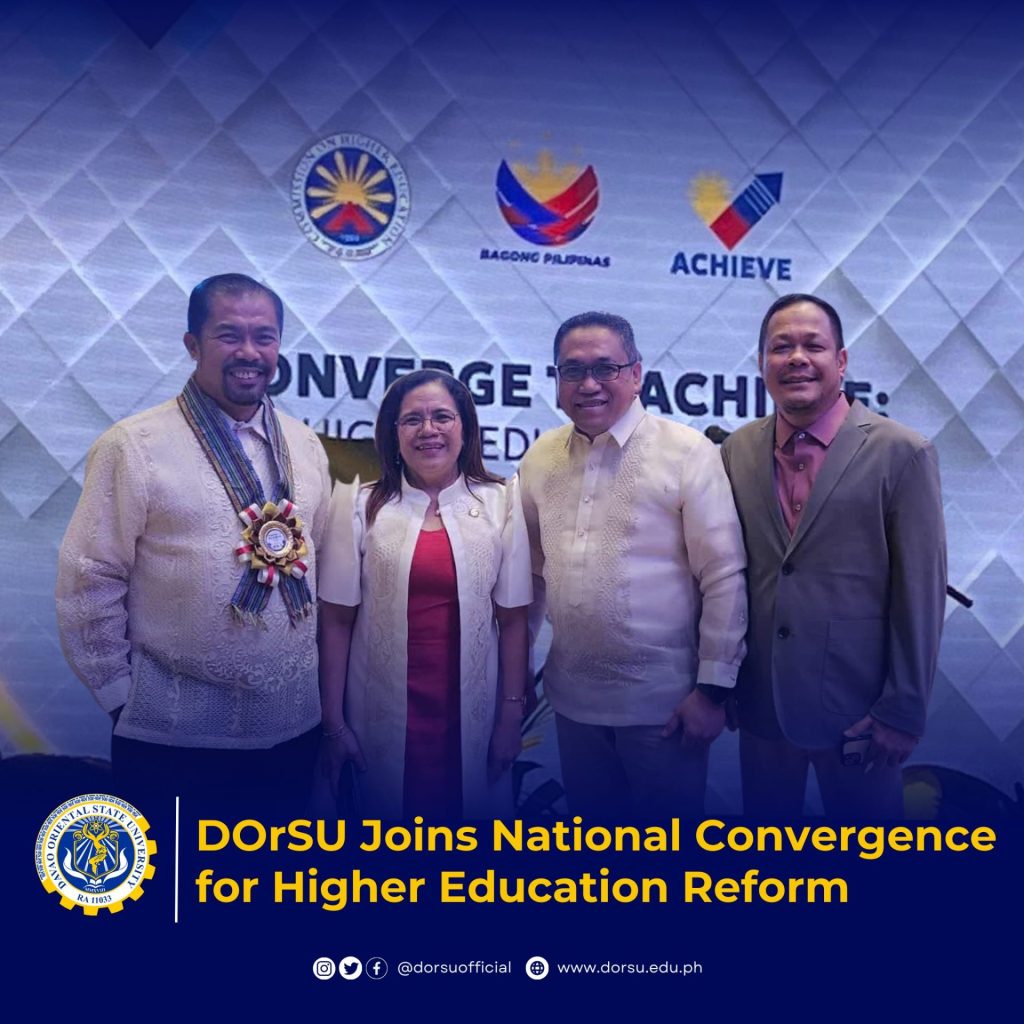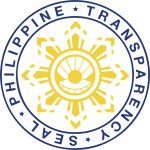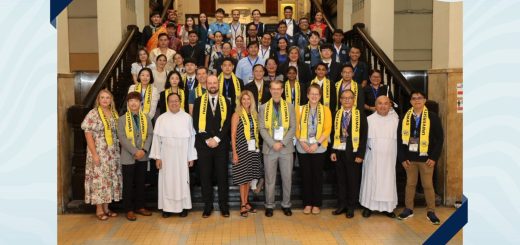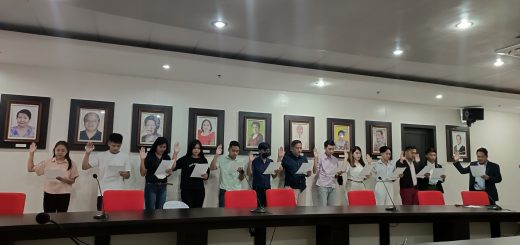DOrSU Joins National Convergence for Higher Education Reform
by DOrSU-PIO · Published · Updated

Davao Oriental State University (DOrSU), led by University President Dr. Roy G. Ponce, reaffirmed its commitment to transformative and inclusive higher education as he participated in the Commission on Higher Education’s (CHED) “Converge to ACHIEVE: The Higher Education Summit” held at the Manila Hotel on September 15.
The summit, which coincided with the first 100 days of CHED Chairperson Dr. Shirley C. Agrupis, convened higher education leaders, government agencies, and partner institutions in advancing reforms under the ACHIEVE Agenda, a seven-point framework designed to promote lifelong learning, research-driven innovation, internationalization, and inclusive quality education for all Filipinos.
The event also showcased international perspectives from New Zealand, Malaysia, and Indonesia on advancing lifelong learning, alongside the formalization of CHED’s partnerships with the Technical Education and Skills Development Authority (TESDA), Department of Labor and Employment (DOLE), the Department of Migrant Workers, the Commission on Human Rights, and Unilab Education. These collaborations aim to bridge technical-vocational and higher education pathways, strengthen the school-to-work transition, integrate human rights education in higher education institutions, and promote innovation-driven professional development.
For DOrSU, the summit provided an important platform to align its Regenerative Futures vision with CHED’s national roadmap for reform. Dr. Ponce further emphasized DOrSU’s support for CHED’s direction, sharing in a social media post: “CHED National Office has become a beacon of inspiration, integrity, hope, and [a] leader of very clear strategic direction for nation building towards a real Bagong Pilipinas!”
With the theme “Transforming Higher Education, Achieving Together,” the summit highlighted the collective mission of higher education institutions to deliver equitable, quality, and future-proof education. It also provided a platform for the University to reaffirm its commitment to driving regional innovation, strengthening global partnerships, and preparing its students to become leaders and nation-builders in a rapidly changing world.






